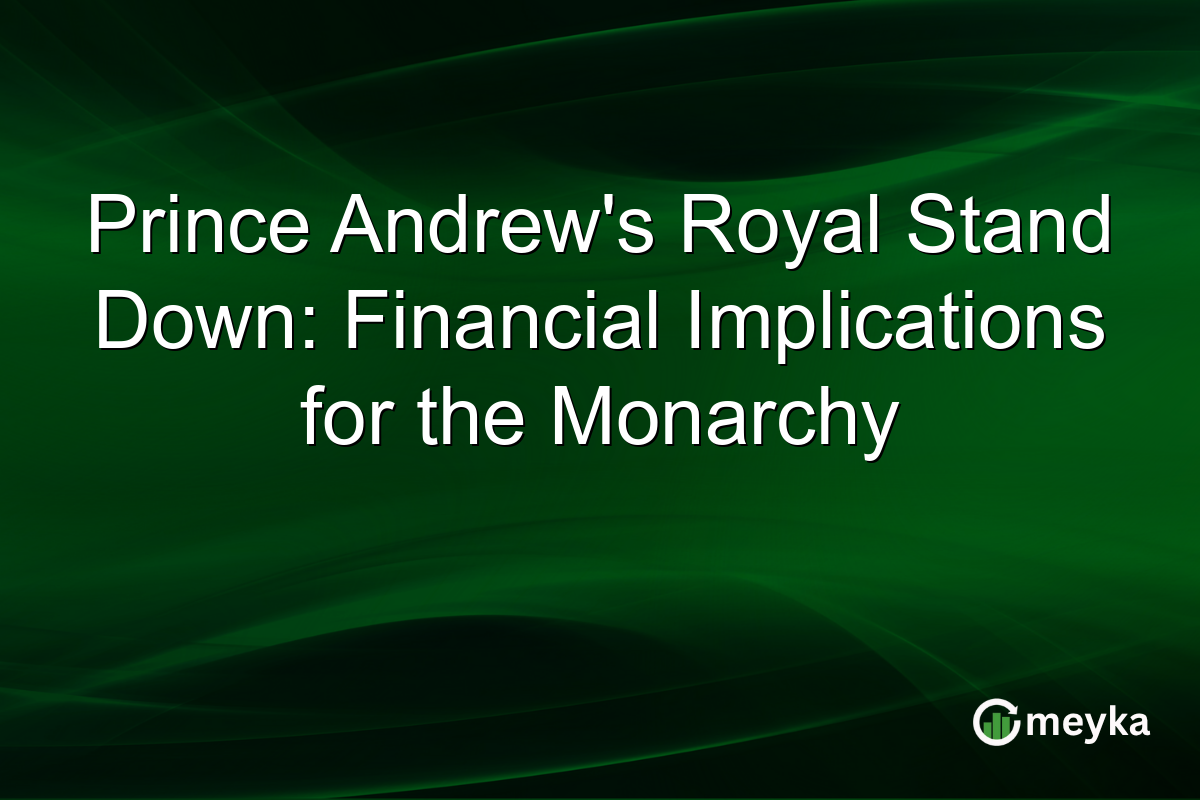Prince Andrew’s Royal Stand Down: Financial Implications for the Monarchy
Prince Andrew’s decision to step back from his official royal duties marks a significant shift in the British Royal Family’s dynamics. This move not only impacts the family internally but also poses potential changes to their financial structure. By choosing to relinquish his royal titles, Prince Andrew’s exit could influence public funding allocations and the broader perception of royal responsibilities. As we delve into the details, the financial ripple effects of this decision become evident.
Impact on British Royal Family Finances
One of the immediate financial consequences of Prince Andrew’s royal exit is the adjustment in public funding allocations. The Sovereign Grant, which funds royal duties, may see less demand with fewer active royals. According to reports, this grant was £86.3 million in 2024. With reduced responsibilities, expenditure could shift, potentially allocating more resources to working royals who maintain public engagements. External conditions, such as public perception and government policies, are also factors publishers are analyzing. Social discussion on X suggests varied public opinion on the perceived value of these funds in light of recent events. See the latest discussion here. This public sentiment can influence future funding decisions and accountability measures.
Royal Titles Impact and Public Perception
Releasing royal titles impacts more than just ceremonial roles; it affects public perceptions and expectations. When royals like Prince Andrew relinquish their titles, questions arise regarding responsibility and relevance. The titles often come with public interest obligations and an expectation of maintaining certain public appearances. A clear ripple effect here is visible in public scrutiny and media narratives questioning the necessity and role of such titles. This shift might lead to broader discussions about the relevance of titles in modern society. Analysts also point out how relinquishing titles could streamline royal duties, focusing only on core functional roles. This might help reinforce the monarchy’s relevance in 2025.
Long-Term Implications for Royal Duties
The long-term implications of this move extend to how royal duties are perceived and executed. With one less active royal, duties undertaken by the family members need redistribution. This could lead to a more focused approach to public service, enhancing efficiency. As seen in past transitions, such as Princess Diana’s shift in roles, the family’s adaptability shapes public and governmental expectations. Continuously evolving roles keep the monarchy relevant and aligned with societal changes. The shift can also lead to reducing the monarchy’s overall operational costs, resonating with public calls for greater transparency and efficiency.
Final Thoughts
Prince Andrew’s exit is a pivotal moment in the evolving narrative of the British monarchy. By stepping back, he not only alters the family’s internal financial allocation but also sets a precedent for future structuring of royal duties and titles. This decision brings forth considerations about public funding and societal roles of titles in the monarchy. The focus will likely be on reinforcing a modern, efficient royal family. For the public, understanding these shifts is crucial as discussions regarding the monarchy’s function and funding remain in the spotlight. As the institution adapts, it navigates between historical value and contemporary relevance, marking a transformative period in royal history.
FAQs
Prince Andrew stepped back from royal duties due to controversies and scrutiny, including his connection to Jeffrey Epstein. His decision aims to distance personal issues from official royal responsibilities.
His exit could lead to reduced financial obligations due to fewer active duties. This may result in altered public funding allocations, potentially increasing resources for other working royals.
The Sovereign Grant is an annual funding model supporting the British Royal Family’s official duties. It helps cover expenses related to engagements, travel, and palace maintenance, adjusting according to the monarchy’s activities.
Disclaimer:
This is for information only, not financial advice. Always do your research.






